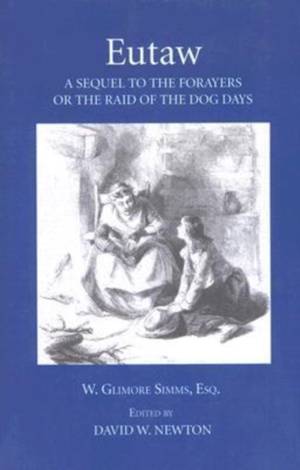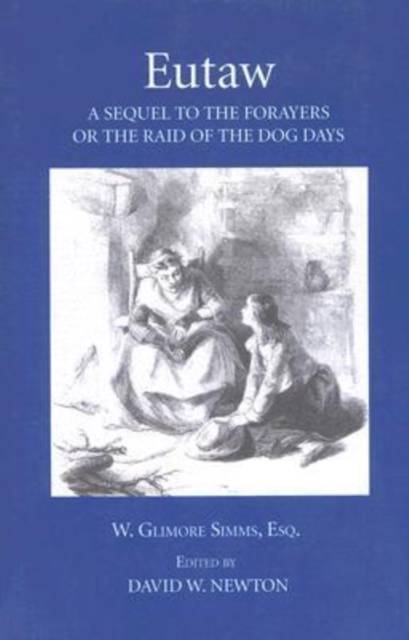
- Afhalen na 1 uur in een winkel met voorraad
- Gratis thuislevering in België vanaf € 30
- Ruim aanbod met 7 miljoen producten
- Afhalen na 1 uur in een winkel met voorraad
- Gratis thuislevering in België vanaf € 30
- Ruim aanbod met 7 miljoen producten
Zoeken
€ 65,95
+ 131 punten
Uitvoering
Omschrijving
William Gilmore Simms's (1806-1870) body of work, which provides a sweeping fictional portrait of the colonial and antebellum South in all its regional diversity, complete with its literary and intellectual issues, is probably more comprehensive than that of any other nineteenth-century southern author. By the mid-1840s his novels were so famous that Edgar Allan Poe wrote that Simms was "the best novelist which this country has, on the whole, produced." Simms wrote eight novels that were set in his home state of South Carolina during the Revolutionary War, and Eutaw, the sixth, was published in 1856, the same year Simms had a disastrous lecture tour in the North, in which he voiced strong pro-South Carolina and pro-Southern views. Eutaw was a sequel to his very successful 1855 novel, The Forayers, and thus completed the most comprehensive saga of the war in our literary history. It focuses on the battle of Eutaw Springs in 1781, which ended British domination of South Carolina. Prominent in this significant battle were Nathanael Greene, Light-Horse Harry Lee, and Francis Marion, about whom Simms would later write a biography. As with other volumes in the Arkansas Edition of Simms's work, this volume includes a critical introduction by the editor and a Simms chronology, as well as appendices dealing with textual matters.
Specificaties
Betrokkenen
- Auteur(s):
- Uitgeverij:
Inhoud
- Aantal bladzijden:
- 588
- Taal:
- Engels
- Reeks:
Eigenschappen
- Productcode (EAN):
- 9781557288288
- Verschijningsdatum:
- 1/05/2007
- Uitvoering:
- Paperback
- Formaat:
- Trade paperback (VS)
- Afmetingen:
- 160 mm x 228 mm
- Gewicht:
- 920 g

Alleen bij Standaard Boekhandel
+ 131 punten op je klantenkaart van Standaard Boekhandel
Beoordelingen
We publiceren alleen reviews die voldoen aan de voorwaarden voor reviews. Bekijk onze voorwaarden voor reviews.











